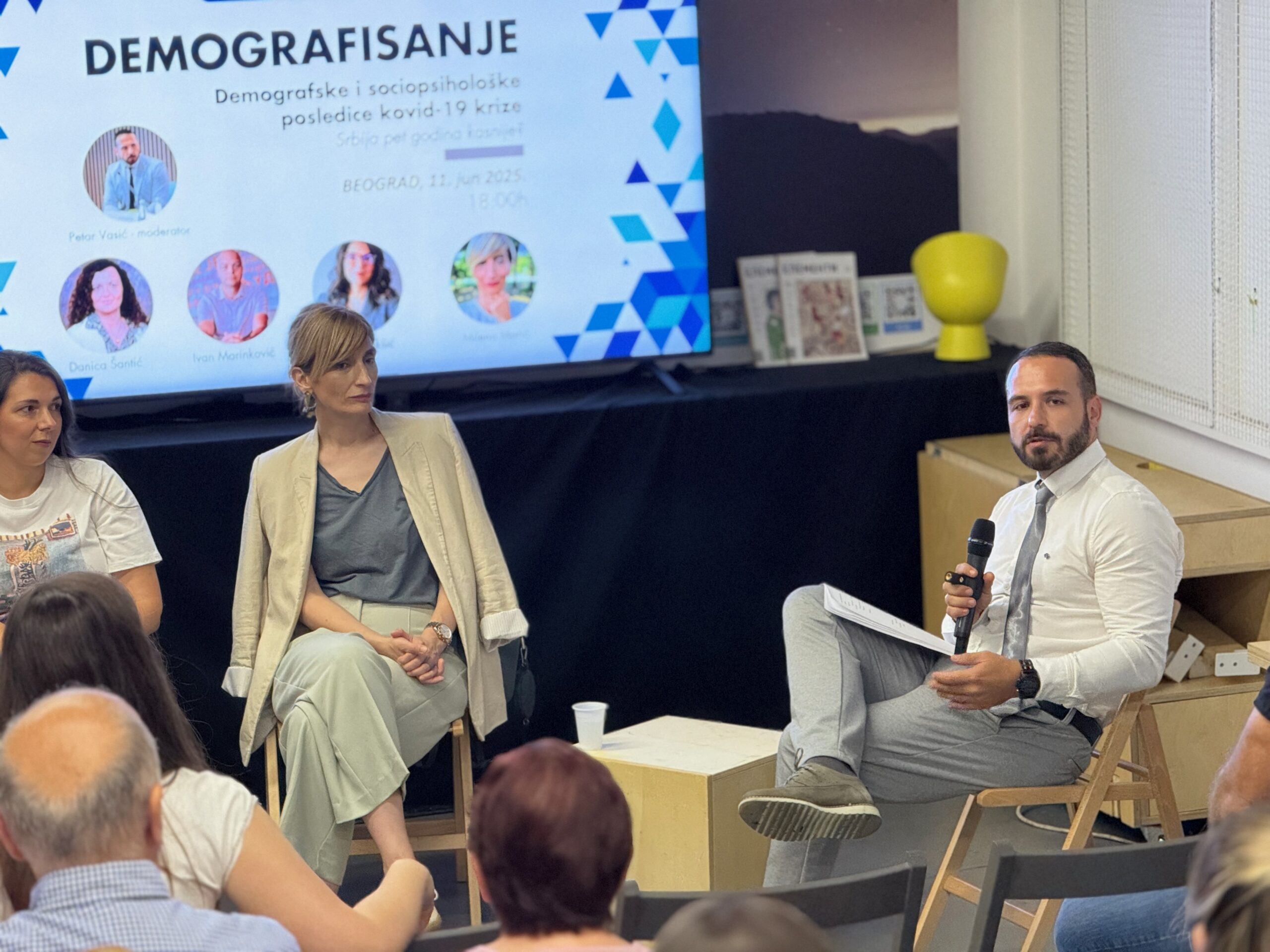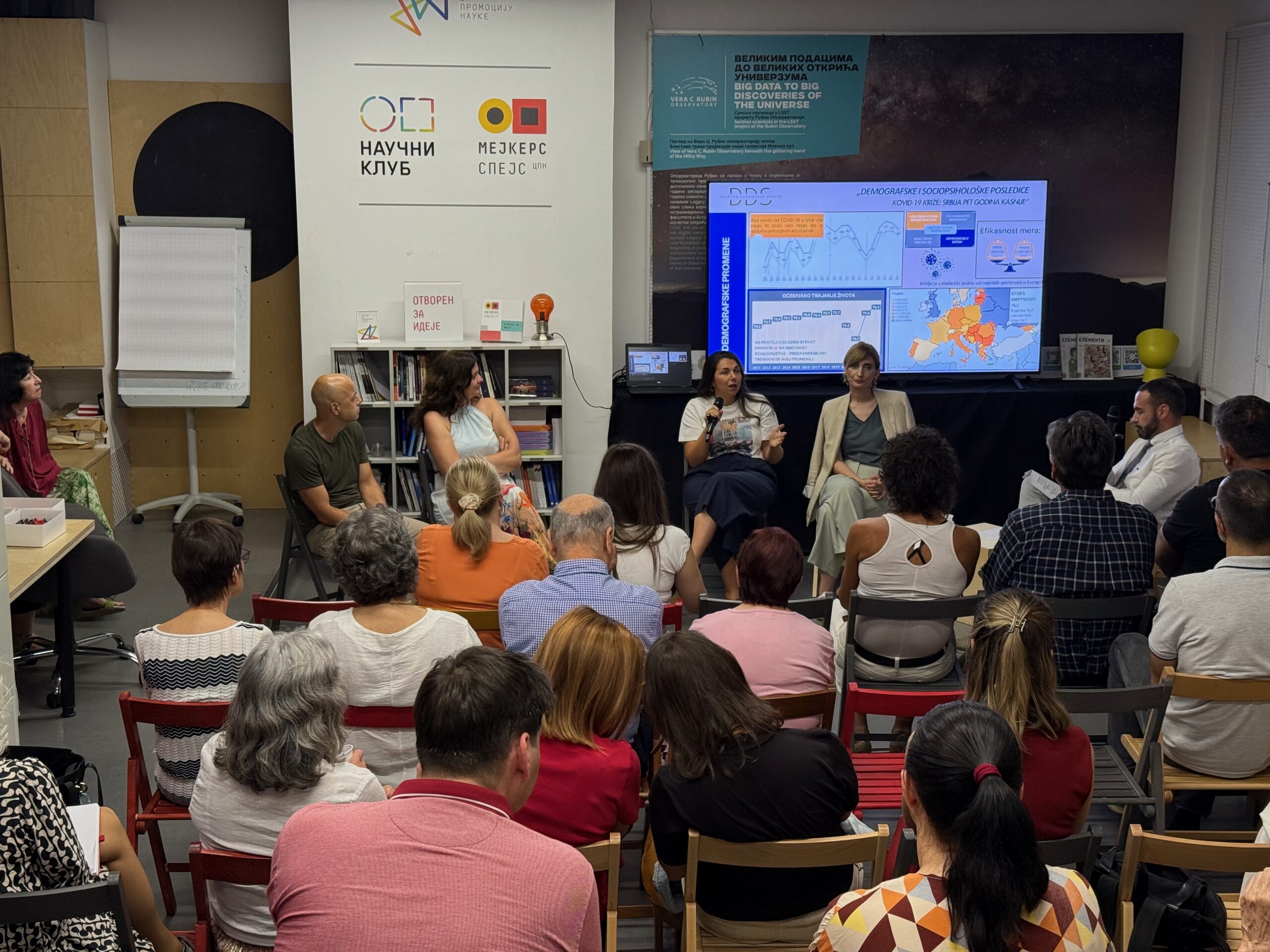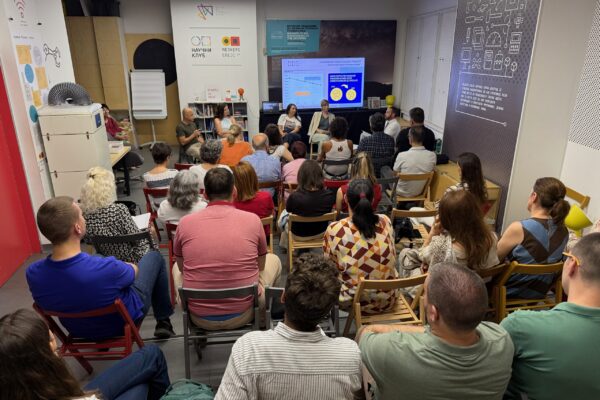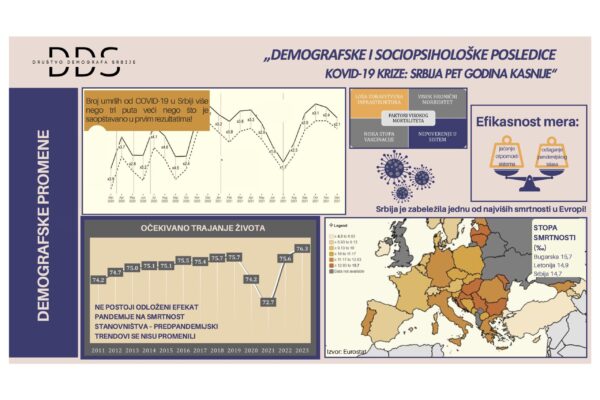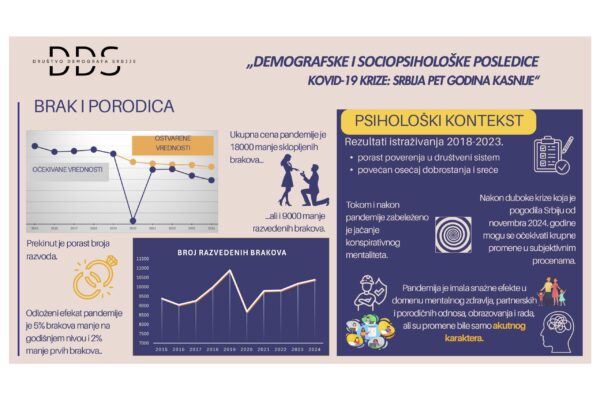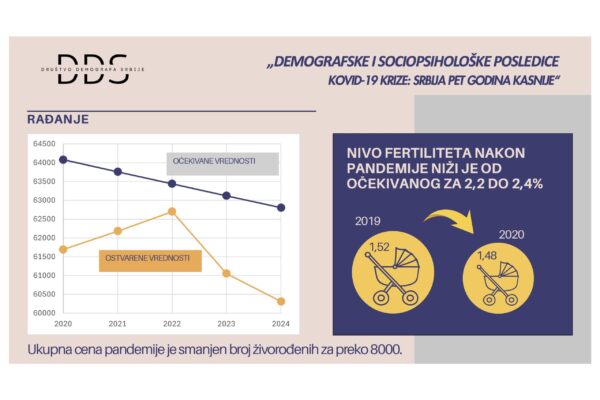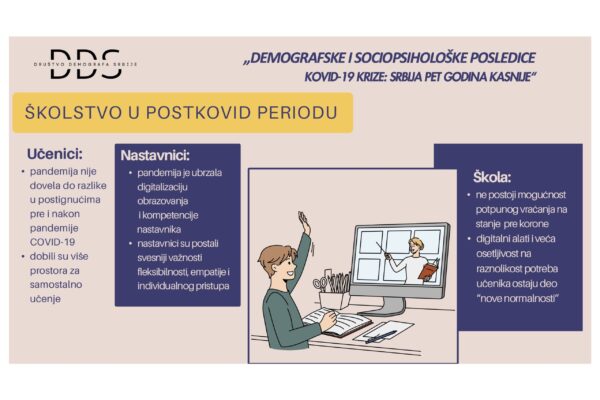At the first Demographic forum held live, on the eve of June 11, 2025, the 35th anniversary of the Association of Demographers of Serbia was symbolically celebrated at the beginning. The president of DDS, Vladimir Nikitović, briefly reviewed the history of the Association, founded on June 21, 1990, through an overview of the most important activities, and acknowledged the initiators.
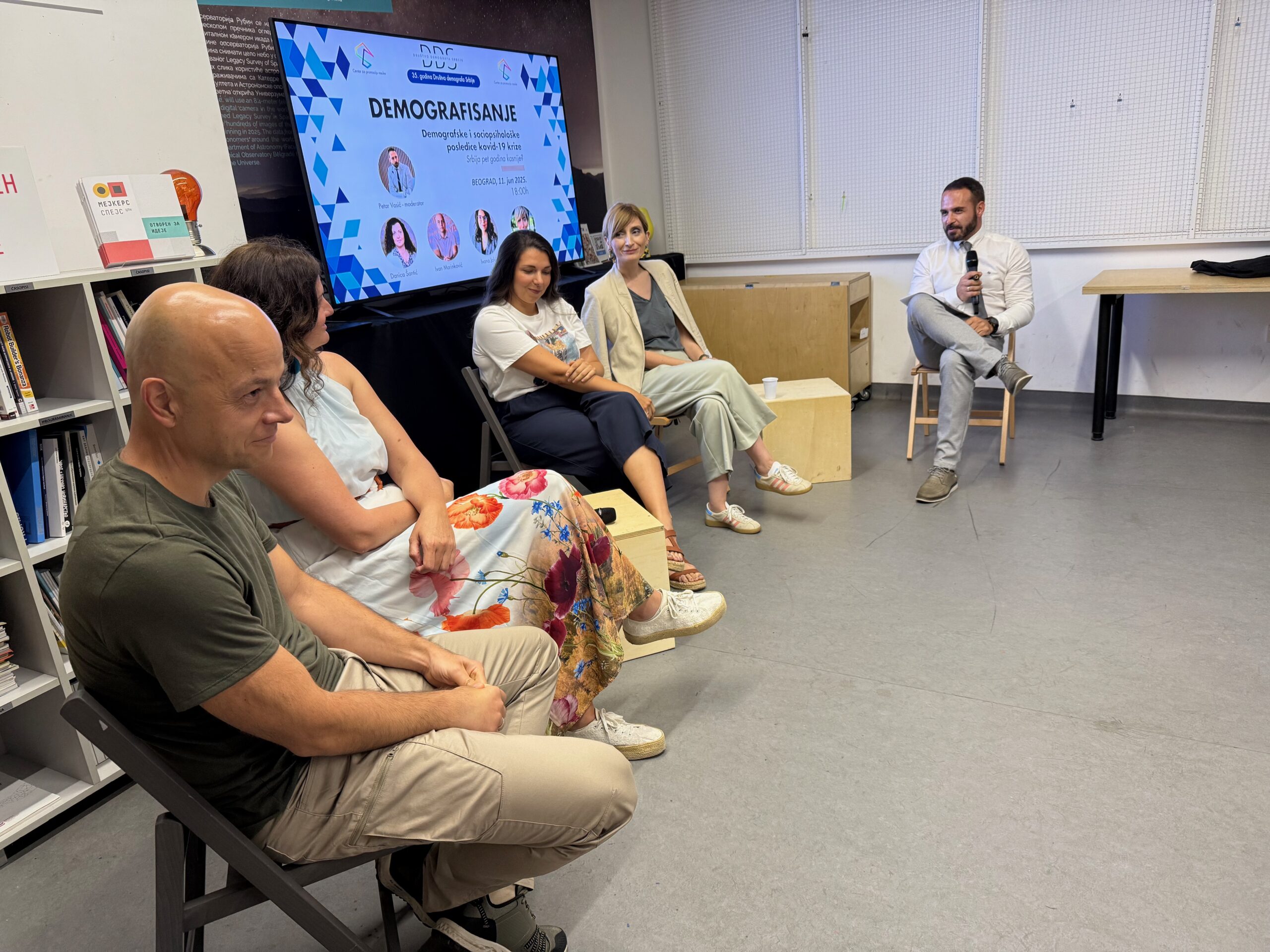
Dr. Ivan Marinković presented that, unlike some earlier pandemics that threatened mainly younger generations, COVID-19 imposed a new paradigm – people over 70 years of age, as well as those with chronic diseases, were exposed to high mortality, with the risk of death being up to a hundred times higher in the elderly compared to those under 35. Also, men were more susceptible to more severe forms of the disease than women, which is explained, among other things, by insufficient awareness of existing health problems and a poorer lifestyle. He also referred to the indirect effects of the measures during the pandemic – pointing out that, in addition to all the negative consequences, the lockdown also brought certain health benefits, such as a reduction in the occurrence of other infectious diseases due to the limited mobility of the population. He concluded that we learned from the pandemic that lockdown itself is not a method that can influence the final effects of the pandemic, because they depend on the health status of the population and the quality of the health care system.

In her discussions, Prof. Dr. Danica Šantić pointed out how the COVID-19 pandemic encouraged countries to introduce various restrictive measures aimed at reducing the spread of the virus. Movement restrictions, vaccination protocols and new security procedures have created the need for a different approach to managing migration, both within the country and across borders. In this context, the Strategy on Economic Migration was adopted in Serbia at the end of 2020, the first systemic document aimed at regulating and better understanding this phenomenon. Although it was adopted at a time of new restrictions, the strategy represents a step towards a more transparent management of migration flows, with a clear focus on data linking, education and labor market needs.

During the forum, one of the speakers – high school teacher, Milena Marić, MSc – shared her experiences about the transformation of teaching in Serbia during the pandemic. She pointed out that the pandemic accelerated digitization in education and changed the dynamics of the relationship between teachers and students. Teachers acquired new tools for organizing classes, and communication with students became more intense and immediate. Although many feared that constant digital availability would break down boundaries, it turned out that it contributed to a better atmosphere in the classroom. Special emphasis is placed on the development of digital competences of teachers. Those who were once skeptical of technology have embraced the new tools and thus taken a significant step forward. As the panelist concluded – “we all, in a way, came out better from that experience”.

Psychologist, Assoc. Dr. Ivana Jakšić, reflected on the psychological consequences of the pandemic and on the social processes that this crisis accelerated. As she pointed out, the pandemic left a strong mark on the psychological health of individuals, but also opened up space for re-examining personal and collective values. She emphasized that one of the positive outcomes was a greater focus on mental health. Society began to open topics that had been marginalized until then – psychological support, togetherness, solidarity. Despite challenges, such as the rise of conspiracy theories and the decline of trust in institutions, society has shown resilience thanks to a cultural orientation towards family and closeness. As a conclusion, the panelist called for the redefinition of parenting and social norms — in the direction of a less exhausting and more supportive model, where relationships, support and empathy are put at the center.
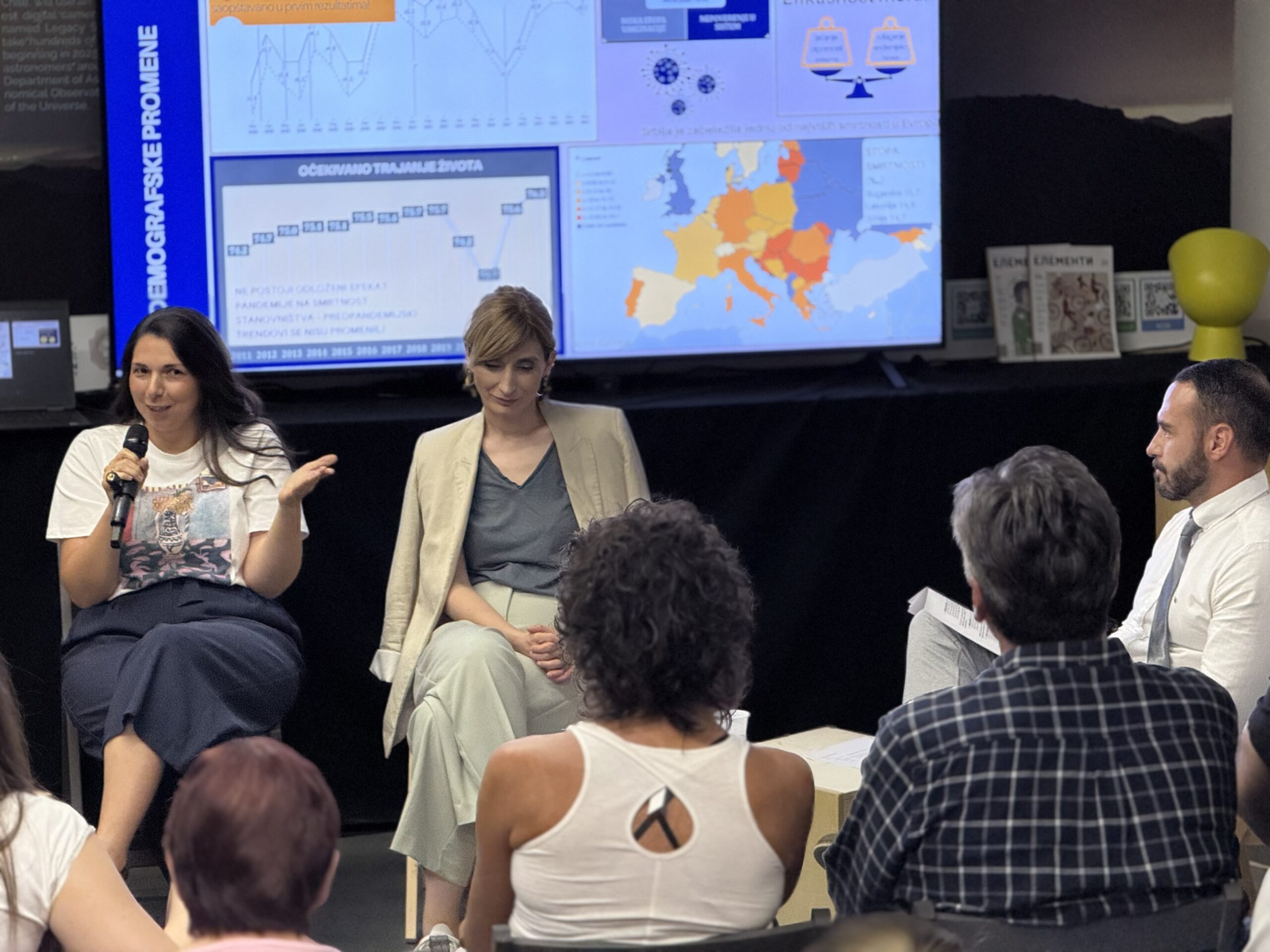
Moderator of the forum, Prof. Dr. Petar Vasić pointed out important trends related to fertility, parenting and demographic policies. He stressed that population policy measures in Serbia increasingly target families with three or more children, but at the same time there is polarization — while one part of the population manages to have more children, the other remains with one or no offspring. Research shows that young people delay entering into partner and parental relationships, which is linked to economic, cultural and psychological challenges. What is particularly significant is the change in the experience of family among young people who have already become parents — support, closeness and togetherness gain new importance. With systemic support, these insights can form the basis for creating policies that not only stimulate childbearing, but also empower society through more stable family relationships and greater social optimism.
